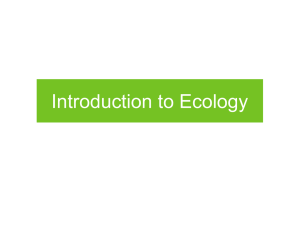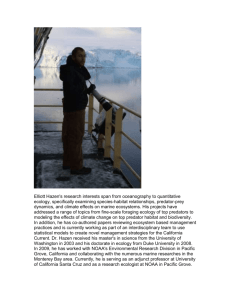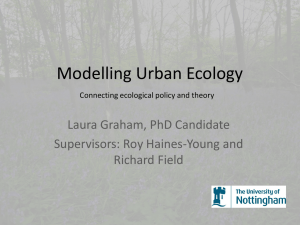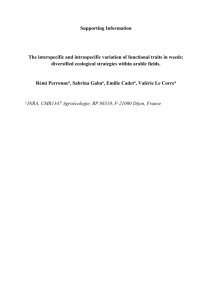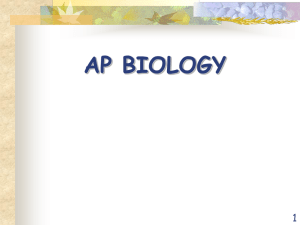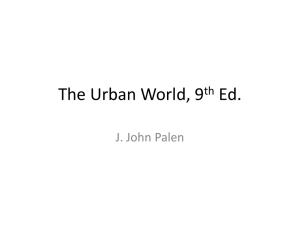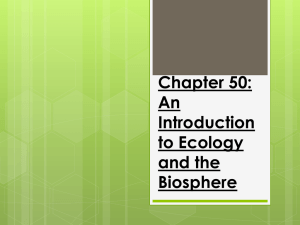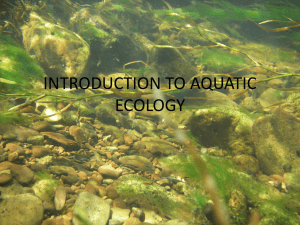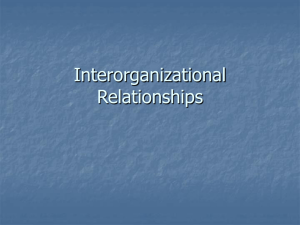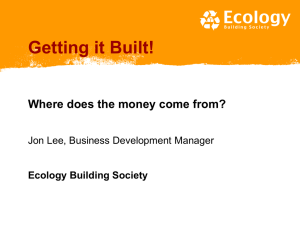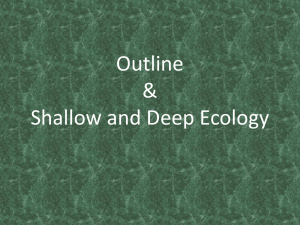PowerPoints
advertisement
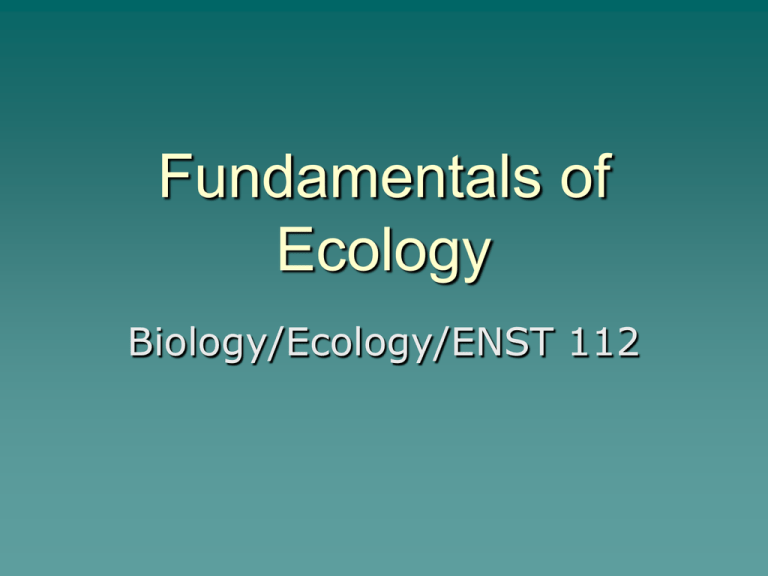
Fundamentals of Ecology Biology/Ecology/ENST 112 What? Second course in ecology, follows 54 New course – work in progress Basic ideas and concepts Skills and experiences You have an opportunity to influence the content! Who? Robert Peet Lee Anne Jacobs Brooke Wheeler Advanced undergraduates and beginning graduate students 2 sophomores, 8 juniors, 16 seniors, 6 graduate students Why are you here? Need a 100-level elective? The course is required? Wish stronger background for research? Interested in a career in ecology? Wish to be an informed citizen? A guided tour of the website http://www.bio.unc.edu/faculty/peet/lab/courses/Biol122 Syllabus Lecture outlines, PowerPoints, readings Laboratory materials Resources Roster Gradebook Exams Announcements Grades 20% 20% 20% 20% 20% Exam 1 Exam 2 Final Exam Laboratory Two written assignments Lecture organization Physical environment & physiological ecology Ecosystems Populations Population interactions Communities Macroecology Texts and Readings Begon, Townsend & Harper 2006 – Suggested chapters – Required sections Gotelli 2001 Original papers for Case Studies Example papers – old and new Laboratory Field experience Skills & tools Quantitative methods Issues: Computers Fieldtrips What is Ecology Haeckel 1863. "the study of all the complex interrelationships referred to by Darwin as the conditions of the struggle for existence, or the economy of nature." Ecology is the scientific study of the interrelationships between organisms, and between organisms and their environment Ecology is the sociology and economics of animals and plants Role of Ecology Understanding nature – "The ecological theater and the evolutionary play." – "Nothing in biology makes sense except in the light of evolution.“ – very little about evolution makes sense except in the light of ecology." Managing nature Ecology as a science “… ecology is a science of contingent generalizations, where future trends depend (much more than in the physical sciences) on past history and on the environmental and biological setting.” Robert May – 1986 Ecology as a science Biology is a study of diversity, be it at the level of species or of molecules There are endless special cases Ecology and Evolution are more uncertain, and thus more challenging than many areas of science. you cannot deduce biology from first principles. What is noise to a physicist is music to a biologist. Scientific process Observation and description Patterns and hypothesis Tests and revision Explanation and understanding Prediction and extrapolation Control Complexity and case studies Levels of organization Organisms Populations Communities Landscapes The Biosphere Ecosystem perspectives Scale perspectives
